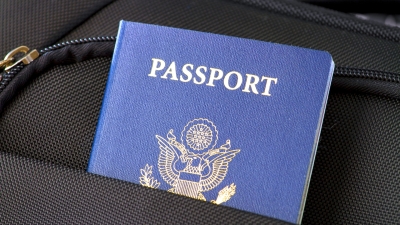If you are traveling to China for the first time, it is extremely important to understand and respect the local customs and habits! This not only helps you avoid cultural conflicts but also enhances your communication with locals. Below are some key customs, habits, and precautions illustrated with specific examples to aid your understanding and adaptation.
China has a large land area and is a multi-ethnic country, and the customs of each region or ethnic group may vary. Please note that the following suggestions may not be applicable to all situations.
Chinese table manners
- When using chopsticks, avoid inserting them upright into food, as it is akin to an offering in China, which can be considered unlucky. When eating, simply place the chopsticks flat on the bowl or chopstick holder.
- Avoid pointing your chopsticks at others or rummage through your plate, and focus on the food in front of you.
- Don’t tap the bowl with chopsticks. This behavior was once used by beggars when begging.
- Try not to speak when you have food in your mouth. This traditional belief stems from the etiquette of ancient China, which emphasizes the importance of remaining quiet during meals to avoid disturbing others.
- When the host pours you wine or tea, gently tap the table or the edge of the cup to express gratitude, which shows respect for the host’s traditional etiquette.
Greetings and salutations
- In China, surnames precede given names in a person’s name. When addressing someone, one can use their full name or add terms like ‘Mr.’ or ‘Ms.’. For example, “李明先生” (lǐ míng xiān shēng) or “李女士” (lǐ nǚ shì).
- When meeting, smiling and nodding are common ways of greeting. A handshake is also acceptable, but hugging is not as common as in the West.
- In China, maintaining an appropriate physical distance is a form of respect.
Behavior in public places
- Try to keep a low profile in public places and avoid speaking loudly or arguing. Keep quiet and respect others in places like libraries and museums.
- When others praise you, Chinese people usually respond humbly, and you can also learn from them, such as saying “It’s nothing, you’re overpraising me” when praised.
- Keep in mind: If someone is staring at you, don’t be offended. They may just be curious and not offend you.
Social interaction
- In China, there are usually many small talk and pleasantries when meeting for the first time, engaging in patient small talk and respond appropriately, which is a way to establish friendly relationships.
- If you are visiting a Chinese household, please take off your shoes before entering. If you are an honored guest, you may be assigned a seat facing the door (although this is no longer popular at youth gatherings).
- When visiting Chinese households, it is best to bring a gift, such as fruit, tea, or small handicrafts. Remember to bring a small gift for the hostess as well (if the hostess has children, you can also bring one for the children), the gift doesn’t need to be too expensive.
- When giving gifts, avoid giving clocks (phonologically related to “send to the end”), pears (phonologically related to “separate”), shoes, or white and black gifts as they may have negative connotations. Choosing gifts with auspicious meanings is more appropriate.
- Respecting elders and people of higher status is very important in social interactions. When communicating with them, use honorifics and show a humble attitude.
Privacy concept
The perception of privacy among Chinese people may differ from that of the West. They may ask personal questions such as age, marital status, etc. You can politely respond or shift the conversation.
Numbers and Colors
- In China, the number 4 is considered unlucky as it is homophonous with ‘death’; on the other hand, the number 8 is considered lucky as it is homophonous with ‘fortune’, symbolizing prosperity. When choosing phone numbers, license plate numbers, etc., Chinese people often avoid 4 and prefer 8.
- Red in China usually symbolizes joy and good luck, and is often used in festivals and celebrations. White and black, on the other hand, are typically worn to funerals, so it’s advisable to avoid wearing these colors to such events.
Language communication
- Learn some basic Chinese vocabulary and phrases, such as “你好” (nǐ hǎo), “谢谢” (xiè xiè), “对不起” (duì bù qǐ), “多少钱?” (duō shǎo qián?). These simple greetings can help you communicate better with the locals.
- Using translation apps can overcome communication barriers. During your travel or daily life, if you encounter language difficulties, you can use translation apps to assist in communication.
By understanding and respecting these customs, you can better integrate into the local culture and enjoy a pleasant and unforgettable trip to China. During your travel or residence in China, with an open mindset and respectful attitude, you will have a richer and more profound experience.


